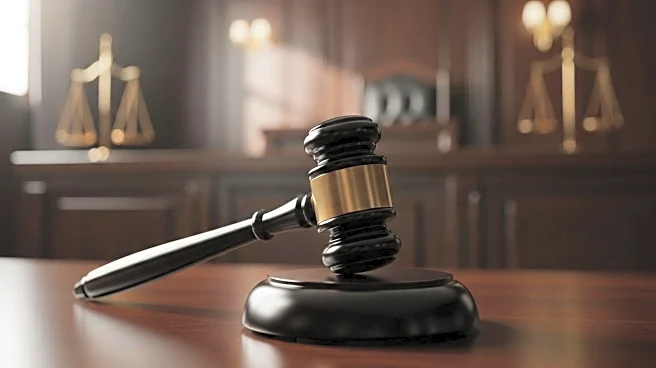What is the story about?
What's Happening?
Former FBI Director James Comey appeared in court to deny charges of lying under oath about leaking information to the media. The case, set for trial on January 5, pits Comey against the Trump administration, which has framed him as an enemy. The prosecution, led by a lawyer appointed by Trump, will face scrutiny over the legality of the appointment. Comey's legal team plans to challenge the prosecutor's appointment, aiming to undermine the case against him.
Why It's Important?
The case against Comey is significant as it highlights the political and legal tensions between the Trump administration and its perceived adversaries. The prosecution's approach and the defense's strategy could have implications for the credibility and independence of the Justice Department. The outcome of the trial may influence public perceptions of political prosecutions and the role of the Justice Department in politically charged cases.
What's Next?
Comey's defense team is expected to challenge the charges, arguing that the prosecution is politically motivated. The trial, set for January, will likely involve intense scrutiny of the evidence and witness testimonies. The outcome could influence the Justice Department's approach to similar cases and affect public perceptions of political prosecutions.
Beyond the Headlines
The case raises broader questions about the role of political influence in legal proceedings. The appointment of a Trump-friendly prosecutor has sparked concerns about the impartiality of the prosecution. The trial could set precedents for how political figures are prosecuted and the role of the Justice Department in politically charged cases. Additionally, the case may influence public perceptions of the FBI and its former director, as well as the broader political climate in the U.S.

















